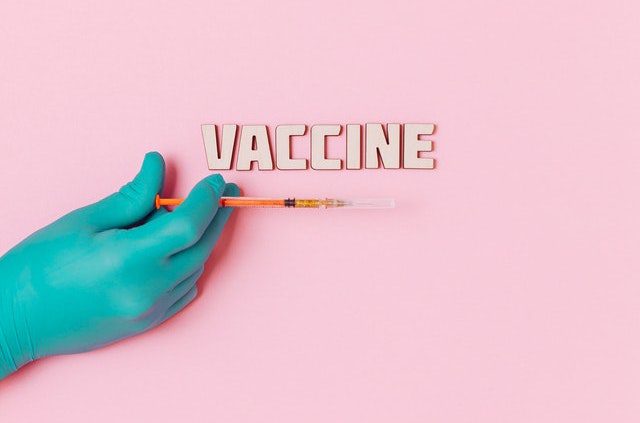As many people know, the coronavirus SARS-CoV-2, better known as COVID-19, was first identified in Wuhan, China, in December 2019. Since then, we have been inundated with information (and misinformation) about the pandemic and recently developed vaccines. In this article, we will cover facts about the pandemic and do a comparison of the COVID-19 vaccines. As can be seen, the current vaccines have differing levels of effectiveness against emerging variants.
Did You Know These Facts About The Pandemic?
- SARS-CoV-2, COVID-19, is believed to be a zoonotic disease, originating in China in bats and migrating to humans.
- COVID-19 is contagious as an airborne virus and rapidly moved from China to many other countries before it was discovered.
- The World Health Organisation declared COVID-19 a pandemic on March 11, 2020. The pandemic has affected societies at every level. Lockdowns, enforced to reduce transmission, continue to disrupt both social and economic life. They also contribute to mental health issues for isolated people.
- The Spanish Flu killed an estimated 50 million people between 1918–1920. The virus has meanwhile infected 215 million people, with 4.47 million deaths worldwide as of mid 2021.
- COVID-19 is primarily a respiratory illness that can also affect other body organs, causing people who contract COVID-19 to have a wide range of symptoms.
- Symptoms may appear 2-14 days after exposure to the virus, and may include: fever or chills; cough; fatigue; shortness of breath; body aches and headache; sore throat; congestion or runny nose; nausea or vomiting; diarrhea; and loss of sense of taste or smell.
Facts About The COVID-19 Vaccines
- Medical scientists quickly developed a number of vaccines to prevent the virus from causing a catastrophic number of deaths. Though they may not prevent acquiring COVID-19 entirely, the vaccines are effective at preventing serious illness or death. You can find our comparison of the COVID-19 vaccines below.
- There are a number of variants of the SARS-CoV-2 disease with names after letters in the Greek alphabet: Alpha, Beta, Gamma, Epsilon, Iota, Mu and Delta. The Delta variant of COVID-19 is 2x more contagious than the original Alpha virus strain. Unvaccinated people are of the greatest concern, and vaccinated people may still experience symptomatic breakthrough infections.
- Vaccine manufacturers are currently investigating additional booster vaccines to best deal with both emerging variants and durability of protection.
- As of August 27, 33% of the global population has received at least one dose of a vaccine. 5.08 billion doses have been given to-date and 33.85 million are administered daily. Only 1.4% of people in low-income countries have received at least one dose.
- Vaccines are effective against all strains of the virus, including the Delta variant, but are not 100% effective. You still need to take precautions by wearing your mask, washing your hands and maintaining social distancing.
A Comparison Of The Current COVID-19 Vaccines
Pfizer-BioNTech
- USA and European manufacturing network
- Doses produced: 50 million in 2020 and up to 1.3 billion in 2021
- For people 12 years and older
- 2 shots required, generally given 3 weeks apart
- You are immune 2 weeks after your second shot
- Works through the use of Messenger RNA—the vaccine teaches our cells how to make a protein, or a piece of protein, that triggers an immune response
- Possible and rare side effects: Allergic reaction; myocarditis (inflammation of the heart muscle); pericarditis (inflammation of the lining outside the heart).
- Effectiveness against COVID-19: 91.3% against disease, 100% against death
- Effectiveness against Delta (B.1.617.2) variant: 88%. Findings of a study in The New England Journal of Medicine support the 2-dose vaccination in the face of a surging number of cases seen in the UK and India mid-2021.
Moderna
- Made in USA and Switzerland
- 600 million to one billion doses to be produced in 2021
- People 18 years and older
- 2 shots generally given 4 weeks (28 days) apart
- You will have immunization 2 weeks after your second shot
- As another mRNA vaccine, Moderna contains material from the virus that causes COVID-19. Our white blood cells remember how to fight the virus with antibodies if we face infection in the future.
- Possible side effects: rare cases of myocarditis and pericarditis in adolescents and young adults have been reported; fatigue, headache, muscle pain, joint pain.
- Effectiveness against COVID-19: 94.1% and 100% against death
- Effectiveness against Delta: A comparison of the Moderna COVID-19 vaccine and its effectiveness against SARS-CoV-2 variants was reported in Science, 12 August 2021. The data was “encouraging for the use of this vaccine in the face of viral variation.”
Johnson & Johnson’s Janssen
- Made in The Netherlands
- Pledge to deliver 100 million doses in 2021
- People 18 years and older
- 1 shot, generally effective 2 weeks after injection
- Possible side effects: Fatigue, fever, headache, muscle pain. According to an FDA report, the J&J vaccine has milder side effects than Pfizer and Moderna.
- Works differently than the mRNA vaccines (Pfizer and Moderna). Janssen is a carrier vaccine. A harmless common virus is engineered inside the vaccine that carries a genetic code on the proteins to the cells (like the Trojan Horse) and trains the body’s immune system to create antibodies to protect against an actual SARS-CoV-2 infection.
- Effectiveness against COVID-19: 72% overall efficacy and 86% against severe illness.
- Effectiveness against Delta: Up to 71% against hospitalization and up to 95% against death.
Oxford–AstraZeneca
- Made in the Netherlands, Germany and the UK
- One billion doses produced by August 2021
- People 18 years and older
- 2 shots, generally given four to 12 weeks apart
- You are immunised 4 weeks after your second shot
- Possible side effects: Tenderness, pain, itching, swelling and bruising at the injection site.
- AstraZeneca is a carrier vaccine, similarly to the Johnson & Johnson vaccine.
- Effectiveness against COVID-19: 76% effective at reducing the risk of symptomatic disease and 100% against both severe disease and death.
- Effectiveness against Delta variant: 60% effective against symptomatic disease and 93% effective against hospitalization.
Novavax
- Made in the USA
- Expecting to produce 150 million doses per month by mid-2021
- 2 doses, given specifically 21 days apart
- 18 years and older
- Works as a recombinant protein adjuvant. Different to both the mRNA and carrier/vector vaccines. Contains the protein of the coronavirus but made as a nanoparticle, which cannot cause disease. The injection stimulates the immune system to produce antibodies and T-cell immune responses.
- Possible side effects: injection site tenderness, fatigue, headache, muscle pain
- Effectiveness against COVID-19: 95.6% and 100% against death
- Effectiveness against Delta: 93% effective against variants, but more data is needed to determine specific effectiveness of this COVID-19 vaccine against the Delta variant, in comparison to others.
Sinovac—CoronaVac
- Made in China
- Producing more than 6 million doses per day
- 2 doses generally given at an interval of 2-4 weeks. Immunity achieved 14 days after the second dose.
- 18 years and older
- Sinovac is effective by using killed viral particles to expose the body’s immune system to SARS-CoV-2—without the risk of a serious disease response. This is a traditional vaccine method, like the one used for rabies.
- Possible side effects include: injection site pain, fatigue, diarrhea and muscle pain. There are reports of less fever with CoronaVac than with Moderna and AstraZeneca vaccines
- Effectiveness against COVID-19 is 51% against symptomatic infection and 100% against severe illness and 100% against hospitalization
- Effectiveness against Delta: Trials show the vaccine has equivalent protection to Alpha, Epsilon and Delta variants
Tips To Staying Healthy And Positive During The Ongoing Pandemic
- Take care of your body: Pay attention to your diet, exercise, and sleep. Everything is better in moderation!
- Take breaks from exposure to the media: Watching grim news stories on television or battles about vaccines on social media can add significantly to your stress levels. Taking time away allows you to reset your mind.
- Take time to relax and do things you enjoy: Even if lockdown or quarantine restrictions prevent you from going out, try to take time to relax and do some things you enjoy. For instance, walking is a healthy activity, costs nothing, and allows you to get out of the house while being socially distant.
- Talk with people that you like and trust: We all need each other at various times. Even with social distancing, you can connect with people by phone or by using one of the many free services available online.





